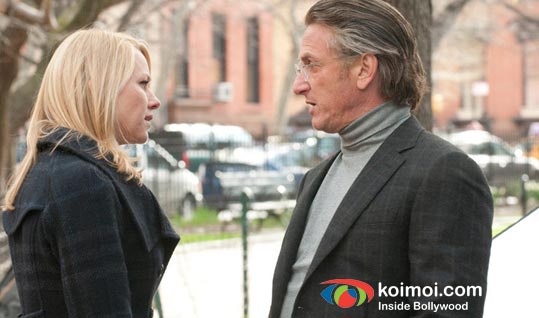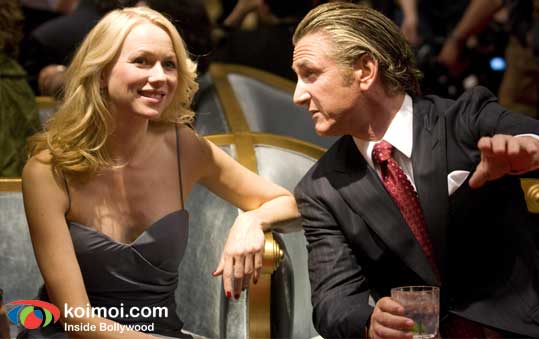Star cast: Sean Penn, Naomi Watts.
Plot: Former diplomat Sean Penn and his wife, CIA’s undercover agent, Naomi Watts, find themselves at the receiving end of a propaganda war when they decide to expose the truth behind the US invasion of Iraq. Their marriage starts to fall apart when Naomi’s cover is blown.
What’s Good: The explosive storyline and excellent screenplay that reveal the true face of the Bush presidency; Sean Penn’s performance.
What’s Bad: By staying too true to reality (the film is based on a true story), the story alienates a section of the audience that will not understand the film.
Verdict: Fair Game is an excellent docu-drama, it entertains to the hilt, but only if you are interested and know the subject matter.
Loo Break: None.
Watch or Not?: Catch it for sure, if you aren’t bothered about the commercial prospects. The film is fair game!

River Road Entertainment and Participant Media’s Fair Game is based on the true-life story of a female CIA agent and her diplomat-husband, who where in the thick of things during the build-up to the US invasion of Iraq in 2003, that followed the 9/11 terrorist attacks and lots of war-mongering by the Bush administration.
Valerie Plame (Naomi Watts) is an accomplished undercover CIA agent working in the counter-proliferation unit. She globe-trots under the guise of being an employee of a venture capital fund, but, in reality, executes different covert projects for the CIA. Back home, in the US, is Valerie’s husband and former diplomat, Joe Wilson (Sean Penn), and their children. With Valerie hardly at home, Joe takes care of the kids and runs a business. However, he is a principled fellow and cannot take any loose talk about geopolitics. Valerie, on the other hand, leads a dual life – risky missions and intelligence decisions on one side and a normal social life and friends on the other. Only Joe, and Valerie’s parents know about Valerie’s real occupation.
With President George W. Bush’s administration pushing up the rhetoric on Iraq in the US and in the UN General Assembly, all talk in the US is about possible weapons of mass destruction (WMDs). As head of the Joint Task Force on Iraq, Valerie is responsible for determining whether or not Saddam Hussain’s regime was developing weapons of mass destruction. To gather intelligence from Iraqi scientists who were members of the nation’s nuclear weapons program, she gets in touch with Dr. Zahraa (Liraz Charhi), a US-based Iraqi citizen, whose brother is a nuclear scientist in Iraq. With Valerie’s help, Dr. Zahraa goes to Iraq but the latter’s brother asserts that the whole of Iraq’s nuclear program was destroyed in the First Gulf War in 1991 and that Iraq has no fissile material to speak of.





 Follow Us
Follow Us








